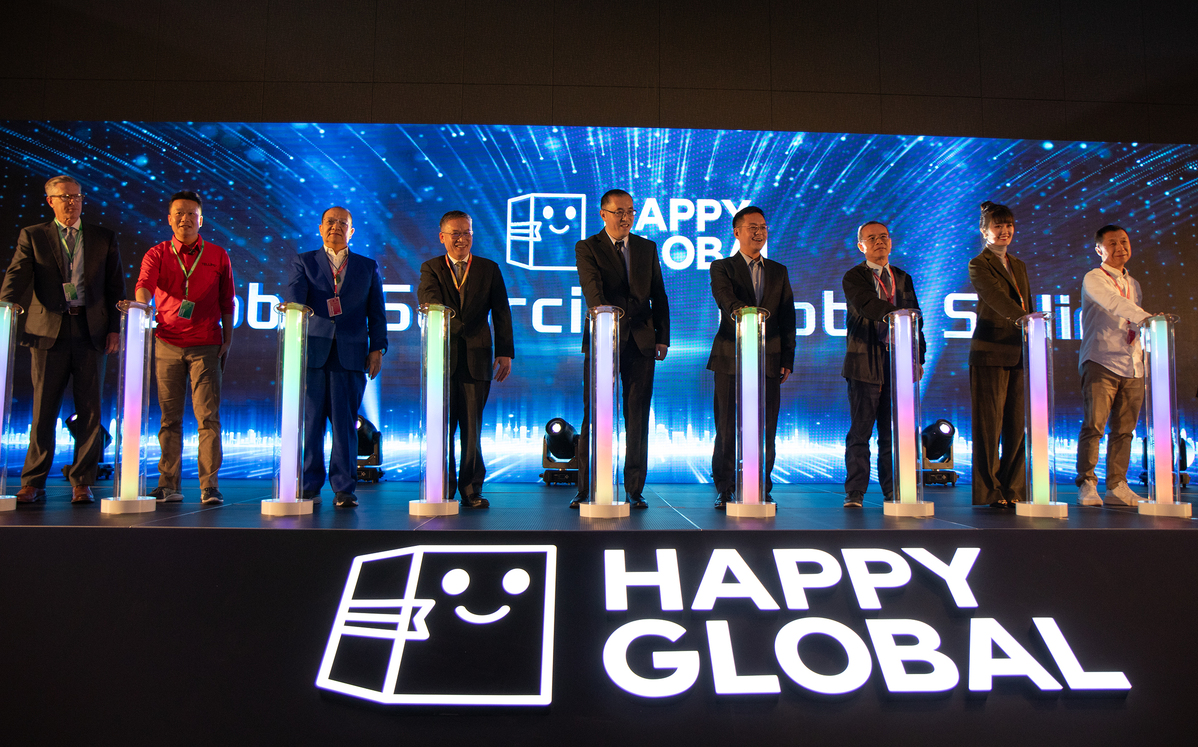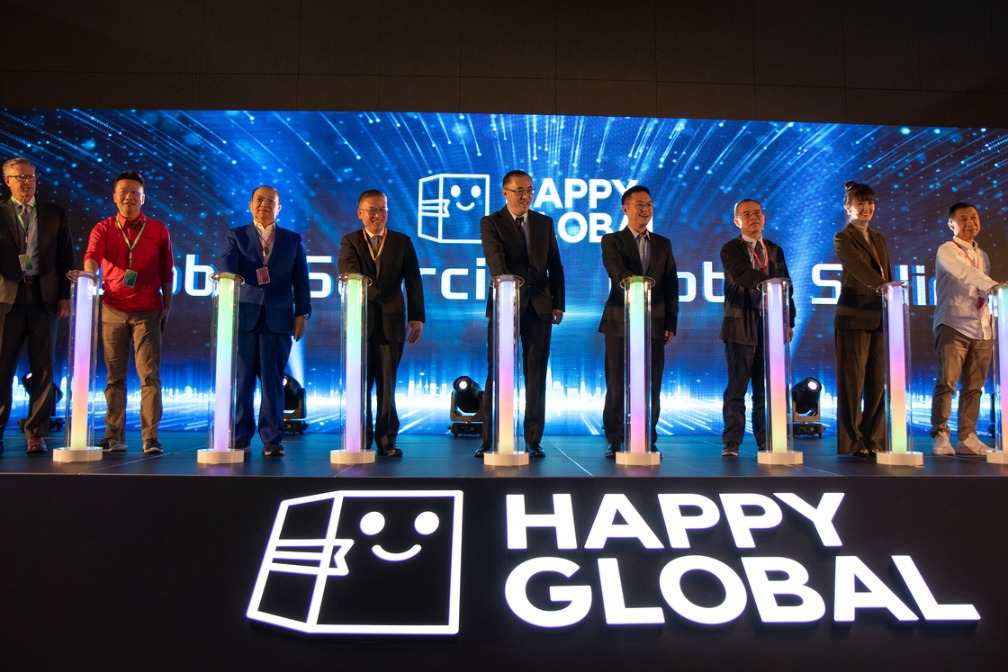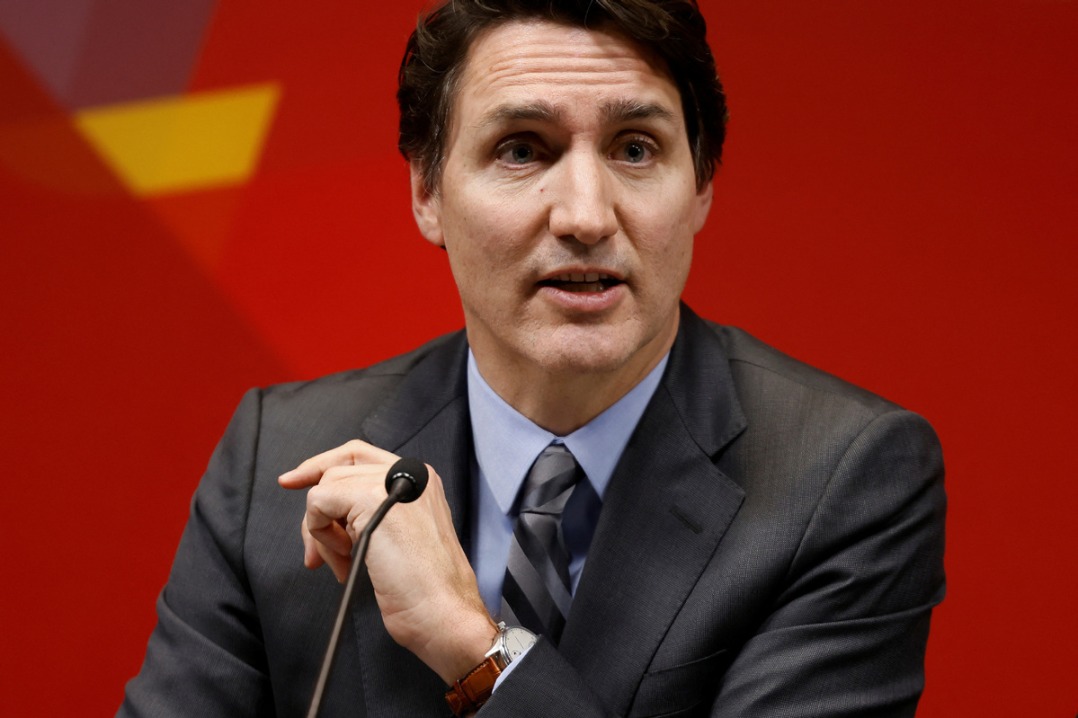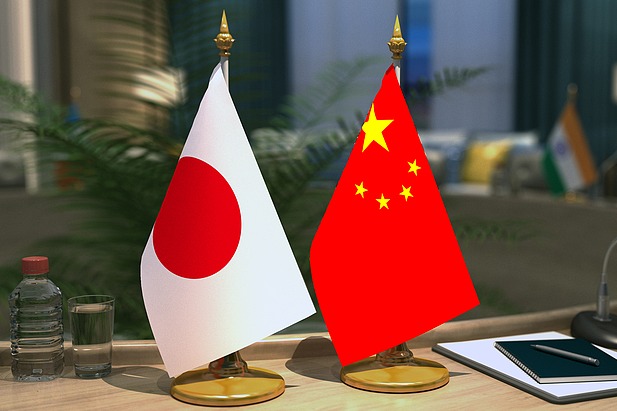B2B platform to promote Asian brands


At a 7-Eleven store in North Dallas, two candies from China – Kozed and Peelerz – are displayed at the most prominent and convenient spot – the booth right at the entrance next to the newspaper stand.
Store clerk Raj said that the two candies have been selling very well compared with other similar products.
"I've been working here for one month, and I know that the sales are very good because people are always getting it, in the morning, evening; people are always getting a bag."
The two candies are among the newly launched products by Happy Global, a new channel platform that aims to empower Asian brands to expand into the US market with a focus on small- and medium-sized retailers.
After three years of operation to test the waters, Happy Global was officially launched on Jan 13 in Dallas, where its global headquarters is located.
The launch was held in conjunction with its inaugural Open Platform Conference at the Kay Bailey Hutchison Convention Center. Scores of its brand partners, channel providers and potential investors attended the event.
Happy Global introduced three modules: a product center, a marketing promotion section, and an integrated purchasing and sales section to the attendees.
Victor Chen, co-founder and CEO, said a three-year dry run has helped the company to "verify the feasibility of Happy Global's business model."
"We look forward to taking 'Global Sourcing, Global Selling' as our mission, aiming to cover 1 million small- and medium-sized retail stores and achieve $10 billion in revenue," said Chen.
"With good partners, good team and good product as our foundation, we will cooperate with more brands and manufacturers to deliver cost-effective products to small- and medium-sized retail channels in the United States, ultimately achieving a win-win situation for product brands, channel providers, stores and consumers."
According to Sarah Li, vice-president at Happy Global, the US retail market will reach $9 trillion by 2030, with 70 percent — about $6 trillion — being offline sales. While 60 percent of the market is taken by retail giants such as Costco and Target, 40 percent, worth $2.4 trillion, is captured by small- and medium-sized retail stores.
It is an underserved market including small regional chains with fewer than 20 locations, local convenience stores, gas stations, grocery stores, tobacco stores and liquor stores.
"They generally lack capabilities of product selection, sourcing, pricing, testing, promotion, marketing, data analysis," said Li. "And these are the target stores for Happy Global.
"For brands, we provide consumer insights, promotion, pricing, marketing, testing, and we help brands to penetrate the US market," Li continued.
"For local service providers, we partner with them to increase the distribution efficiency. For stores, we provide high-quality, cost-effective product portfolios, and we help stores to improve their operational efficiency by empowering stores, and help stores to serve their consumers."
Li said that Happy Global, through three years of deep cultivation in the US market, has directly and indirectly covered around 200,000 small- and medium-sized retail stores in the United States.
Kozed is a gummy candy from the Pearl River Delta Industrial Zone in China. Launched in the US market in December, Kozed candies are already available in 500 stores.
"We estimate that by Q1 2025, we will achieve $1 million in retail sales," Li said, adding that they expect $10 million sales by the end of 2025.
The day after the launch and conference, business partners toured Happy Global's office and warehouse, checked out product samples, and visited a 7-Eleven store to see the product.
Charlie Kratka of Dr. Distro, a distribution company in Florida, said he's been working with Happy Global the past couple of years.
"I've never been stuck with one of their items. Everything I've ever purchased from [Happy Global], I've profited on and sold in full. They are one of my favorite vendors," he said.
Kratka said the conference helped him understand what Happy Global is getting into, and that the company has done "an incredible job".
"I've never sold chips or chocolates or candies other than gummies, but I would be willing to try some exotic snacks," said Kratka. "I am interested in purchasing some of those snacks. I'm all up on a large scale."
Li said that she believes what Happy Global is doing will benefit both manufacturers and consumers.
In her visits to US stores and in studying consumer research, "the most frequently heard word is inflation", and distribution partners and store owners hope for "more high-quality cost-effective products".
She also visited dozens of brands and factories in the snack and beverage industries in China and saw a shrinking domestic market.
"I've seen the desire for efficient matching of supply and demand from both sides of the Eastern and Western hemispheres. Whether actively or passively, we believe that 2025 will be the beginning of Asian brands and the manufacturers deeply penetrating the US offline market," Li said.
mayzhou@chinadailyusa.com































